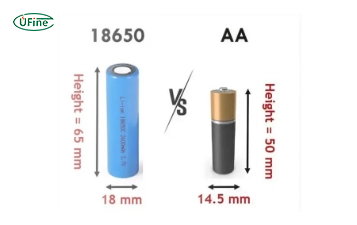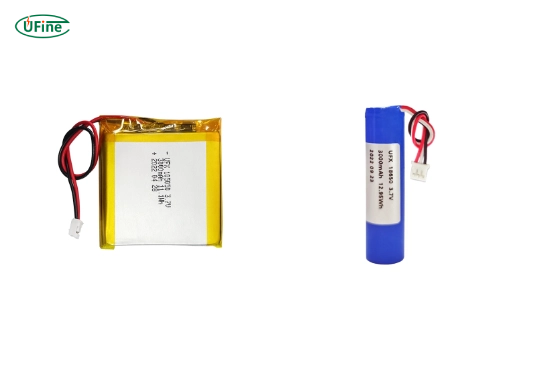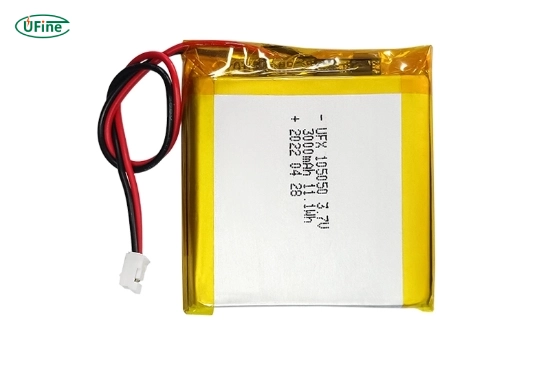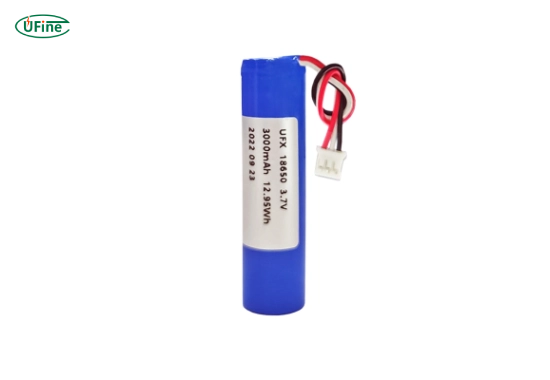
- Part 1. What is a 3000mAh battery?
- Part 2. Why is battery capacity important for smartphone manufacturers?
- Part 3. Key specifications to evaluate in a 3000mAh battery
- Part 4. What types of lithium batteries are used in 3000mAh configurations?
- Part 5. What industries commonly use 3000mAh batteries?
- Part 6. What to consider when selecting a 3000mAh battery supplier?
- Part 7. What are the risks of using a low-quality 3000mAh battery?
- Part 8. How to test battery quality before bulk purchasing?
- Part 9. FAQs about 3000mAh battery
Choosing the best 3000mAh battery for a smartphone is a critical decision for device manufacturers, wholesalers, and repair service providers. For any business dealing with consumer electronics, understanding battery quality, performance, safety, and compatibility is crucial to delivering reliable products to end-users.
A high-quality 3000mAh lithium battery ensures optimal device performance, longer operational life, and reduced warranty claims. In this comprehensive guide, we will explore everything B2B clients need to know when selecting or sourcing 3000mAh batteries for smartphones or related electronic devices.
Part 1. What is a 3000mAh battery?
A 3000mAh battery refers to a rechargeable lithium battery with a nominal capacity of 3000 milliamp-hours. This capacity indicates the amount of charge it can store and deliver over time. In practice, a 3000mAh battery can supply 3000 milliamps of current for one hour or 1500 milliamps for two hours.
These batteries are commonly used in:
- Mid-range smartphones
- Wearable devices
- Smart home controllers
- IoT devices
- Compact power tools
From a manufacturing perspective, these batteries must meet both performance standards and safety certifications before being integrated into commercial products.
Part 2. Why is battery capacity important for smartphone manufacturers?
Battery capacity has a direct impact on device usability, customer satisfaction, and product reputation. A 3000mAh battery is considered a balanced option for compact and mid-sized devices, offering:
- Lightweight form factor
- Sufficient power for daily use
- Lower cost compared to higher-capacity units
However, capacity alone does not determine performance. Internal cell quality, energy density, discharge rate, and temperature stability are equally important.
For OEMs and product designers, choosing a battery with the right capacity and high-quality cell structure ensures:
- Stable voltage output
- Minimal performance degradation over time
- Competitive battery life in real-world usage scenarios
Part 3. Key specifications to evaluate in a 3000mAh battery
When sourcing or evaluating a 3000mAh battery from a supplier, B2B clients should review the following technical specifications:
1. Nominal Voltage
Typically 3.7V or 3.8V for lithium-ion batteries. Voltage must be compatible with the device’s power system.
2. Charge and Discharge Rates (C-rate)
Defines the rate at which the battery can be charged or discharged. A higher C-rate enables fast charging, but it must be safely managed.
3. Cycle Life
Indicates the number of full charge-discharge cycles the battery can undergo before its capacity drops below 80%. A good lithium battery should offer at least 500 cycles.
4. Internal Resistance
A low internal resistance results in better efficiency and reduced heat generation. It’s a marker of high-quality battery construction.
5. Temperature Range
Operating temperature should range between -20°C and 60°C. The storage temperature should be even wider for global distribution.
6. Certifications
Compliance with certifications such as UN38.3, CE, RoHS, IEC 62133, and UL 2054 is mandatory for international trade and safety assurance.
Part 4. What types of lithium batteries are used in 3000mAh configurations?
There are two main lithium chemistries used in 3000mAh smartphone batteries:
1. Lithium-ion (Li-ion)
- High energy density
- Longer cycle life
- Slightly heavier
- Common in mainstream smartphones
2. Lithium-polymer (Li-Po)
- More flexible in shape
- Lightweight and compact
- Slightly lower energy density
- Ideal for slim and compact devices
For manufacturers, the choice depends on device design, weight constraints, and thermal performance requirements.
Part 5. What industries commonly use 3000mAh batteries?
While 3000mAh batteries are popular in smartphones, other industries also rely on this capacity for various applications:
- Consumer Electronics: Smartwatches, fitness trackers, Bluetooth speakers
- Medical Devices: Portable diagnostic tools and monitors
- Telecom Equipment: Wireless modems and routers
- Retail Terminals: Handheld POS systems
- Smart Home Devices: Hubs, remotes, and security sensors
For B2B buyers, understanding these markets helps identify cross-industry distribution opportunities.
Part 6. What to consider when selecting a 3000mAh battery supplier?
Choosing the right supplier is as important as choosing the right battery. B2B clients should evaluate suppliers based on:
1. Manufacturing Capabilities
- Automated production lines
- Strict quality control systems
- ISO 9001 certification
2. R&D Strength
- In-house battery testing labs
- Customization capabilities
- Innovation in energy density and safety
3. Logistics and Lead Time
- Fast delivery
- Global shipping experience
- Stable supply chain, especially for critical raw materials
4. After-sales Support
- Technical documentation
- Return and warranty policies
- Engineering consultation
5. Customization Options
- Custom battery packs
- PCB integration
- Branding and labeling
Part 7. What are the risks of using a low-quality 3000mAh battery?
Using a low-quality 3000mAh battery may reduce production cost in the short term but can lead to severe long-term consequences:
1. Overheating and Fire Risk
Poor-quality cells may lack thermal protection, increasing the risk of overheating, swelling, or even explosion under stress.
2. Reduced Battery Life
Low-grade materials degrade more quickly, typically offering fewer than 300 charge cycles, resulting in premature battery replacement.
3. Inconsistent Capacity
Cheap batteries may be labeled as 3000mAh but deliver significantly less capacity, leading to customer dissatisfaction.
4. Device Malfunction
Voltage irregularities and poor PCB design can significantly impact the performance of the entire device, potentially leading to returns and damage to the brand.
5. Regulatory Issues
Non-compliant batteries may be blocked at customs or banned from air freight, disrupting your supply chain.
For manufacturers and resellers, investing in certified, high-quality batteries is essential to avoid safety recalls, lawsuits, or reputational damage.
Part 8. How to test battery quality before bulk purchasing?
Before placing large orders, manufacturers should conduct the following tests:
1. Capacity Testing
Verify the actual capacity using battery analyzers like Cadex or Arbin systems.
2. Cycle Life Testing
Simulate repeated charge/discharge cycles to measure degradation performance.
3. Thermal Stability Testing
Expose the battery to various temperatures to evaluate its performance across operating ranges.
4. Impedance Testing
Measure internal resistance to assess energy efficiency and heat generation.
5. Safety and Abuse Testing
Includes overcharge, short circuit, crush, and puncture tests to check for fire or explosion risks.
Part 9. FAQs about 3000mAh battery
What does 3000mAh mean in practical terms?
It means the battery can deliver 3000 milliamps for one hour or 1000 milliamps for three hours, depending on the device’s power consumption.
Can we use a 3000mAh battery in a device designed for 3500mAh?
Yes, if the voltage and dimensions are compatible, but the device may have a shorter runtime.
Are 3000mAh batteries still relevant in 2026?
Yes, they are widely used in low-power and mid-range devices due to their balance of capacity, cost, and size.
How can I ensure a 3000mAh battery is safe?
Check for certifications, request test reports from the supplier, and verify their compliance with UN38.3 and IEC standards.
What is the average lifespan of a high-quality 3000mAh battery?
Typically between 500 to 800 full charge cycles, depending on usage and operating conditions.
Related Tags:
More Articles

18650 Battery vs AA: Which Is Better for Your Device?
Compare 18650 vs AA batteries in capacity, voltage, rechargeability, and applications. Learn which battery type fits high-drain or everyday devices.
What is the Difference Between Battery Cell, Battery Control Module, and Battery Pack?
Compare battery cells, modules, and packs. Learn functions, design differences, control modules, and selection tips for EV, ESS, and industrial use.
How to Prevent LiPo Battery Explosion?
Can LiPo batteries explode or catch fire? Learn key causes of LiPo battery fires and proven charging, storage, and handling tips to reduce explosion risk.
Aluminium Ion Battery vs Lithium-Ion: A Detailed Comparison
Compare aluminium ion battery vs lithium-ion battery in energy density, charging speed, safety, cost, and uses. A practical guide for engineers and buyers.
C vs D vs AA Battery: Size, Voltage, Capacity & Key Differences Explained
Compare AA, C, and D batteries by size, voltage, capacity, and lifespan. Learn the real difference between C and D batteries and which one you should use.





